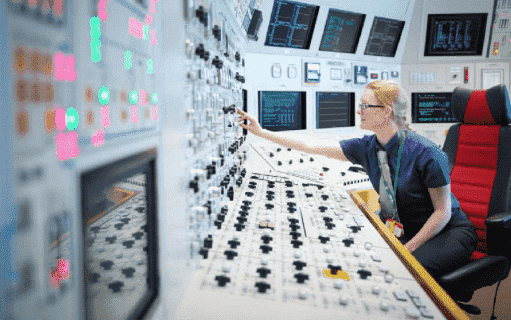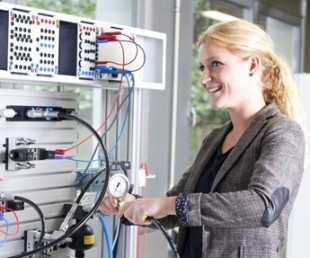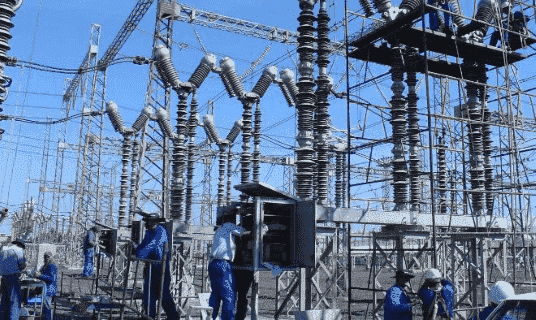COURSE OVERVIEW
ELECTRICAL & POWER ENGINEERING

OVERVIEW
| COURSE TITLE | : | EE0085 : Power System Control & Stability |
| COURSE DATE | : | Aug 19 - Aug 22 2024 |
| DURATION | : | 4 Days |
| INSTRUCTOR | : | Mr. Saed Aljundi Days |
| VENUE | : | Abu Dhabi, UAE |
| COURSE FEE | : | $ 4500 |
| Register For Course | ||
OTHER SCHEDULED DATES
| Date | : | May 13 - May 16 (4 Days) | Location | : | Al Khobar, KSA | Classroom Fee (US$) | : | $ 4500 | Course Info |
| Date | : | Nov 18 - Nov 21 (4 Days) | Location | : | Doha, Qatar | Classroom Fee (US$) | : | $ 5000 | Course Info |
Course Description
This practical and highly-interactive course includes various practical sessions and exercises. Theory learnt will be applied using our state-of-the-art simulators. The robustness of a power system is measured by the ability of the system to operate in a state of equilibrium under normal and perturbed conditions. Power system stability deals with the study of the behavior of power systems under conditions such as sudden changes in load or generation or short circuits on transmission lines. A power system is said to be stable if the interconnected generating units remain in synchronism. The ability of a power system to maintain stability depends to a large extent on the controls available on the system to damp the electromechanical oscillations. Hence, the study and design of controls are very important. Of all the complex phenomena on power systems, power system stability is the most intricate to understand and challenging to analyze. Electric power systems of the 21st century present an even more formidable challenge as they are forced to operate closer to their stability limits.This course is concerned with understanding, modelling, analyzing, and mitigating power system stability and control problems. Such problems constitute very important considerations in the planning, design, and operation of modern power systems. The complexity of power systems is continually increasing because of the growth in interconnections and use of new technologies. At the same time, financial and regulatory constraints have forced utilities to operate the systems nearly at stability limits. These two factors have created new types of stability problems. Greater reliance is, therefore, being placed on the use of special control aids to enhance system security, facilitate economic design, and provide greater flexibility of system operation. In addition, advances in computer technology, numerical analysis, control theory, and equipment modelling have contributed to the development of improved analytical tools and better system-design procedures. The primary motivation for this course is to describe these new developments and to provide a comprehensive treatment of the subject. The course is intended to meet the needs of practicing engineers associated with the electric utility industry as well as those of graduate students and researchers. The course will provide the necessary fundamentals, explaining the practical aspects, and giving an integrated treatment of the latest developments in modeling techniques and analytical tools.
TRAINING METHODOLOGY
This interactive training course includes the following training methodologies as a percentage of the total tuition hours
LecturesWorkshops & Work Presentations
Case Studies & Practical Exercises
Videos, Software & Simulators
In an unlikely event, the course instructor may modify the above training methodology before or during the course for technical reasons.
VIRTUAL TRAINING (IF APPLICABLE)
If this course is delivered online as a Virtual Training, the following limitations will be applicable
| Certificates | : | Only soft copy certificates will be issued to participants through Haward’s Portal. This includes Wallet Card Certificates if applicable |
| Training Materials | : | Only soft copy Training Materials (PDF format) will be issued to participant through the Virtual Training Platform |
| Training Methodology | : | 80% of the program will be theory and 20% will be practical sessions, exercises, case studies, simulators or videos |
| Training Program | : | The training will be for 4 hours per day starting at 09:30 and ending at 13:30 |
| H-STK Smart Training Kit | : | Not Applicable |
| Hands-on Practical Workshops | : | Not Applicable |
| Site Visit | : | Not Applicable |
| Simulators | : | Only software simulators will be used in the virtual courses. Hardware simulators are not applicable and will not be used in Virtual Training |
RELATED COURSES

EE0198 : API SIEE: Source Inspector - Electrical Equipment (API Exam Preparation Training)
- Date : May 12 -May 16 / 3 Days
- Location : Doha, Qatar
- Course Details Register

EE0050 : HV/MV Substation Design, Installation, Commissioning, Testing, Operation, Control & Maintenance
- Date : May 12 -May 16 / 3 Days
- Location : Istanbul, Turkey
- Course Details Register

EE0050S3 : High and Medium Voltage Substation Design, Testing and Maintenance
- Date : May 12 -May 16 / 3 Days
- Location : Doha, Qatar
- Course Details Register

EE0421 : Electrical Transformers & Switchgears: Faults, Inspection, Testing, Maintenance & Troubleshooting
- Date : May 13 -May 16 / 3 Days
- Location : Abu Dhabi, UAE
- Course Details Register
